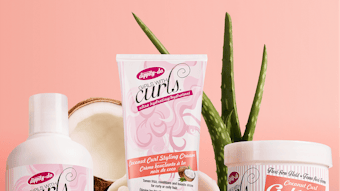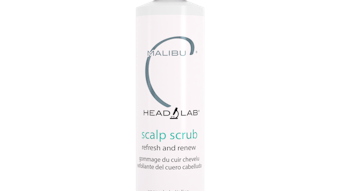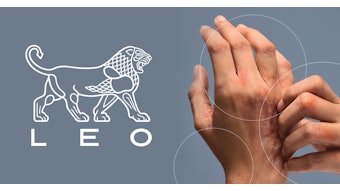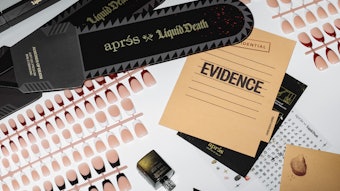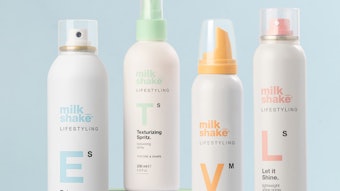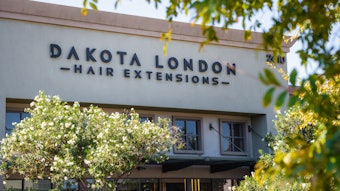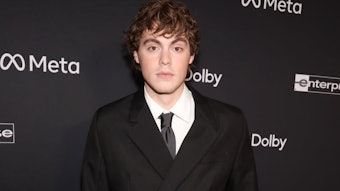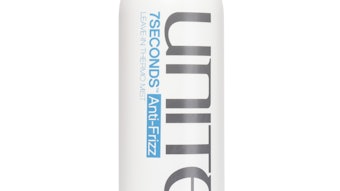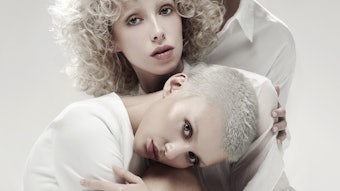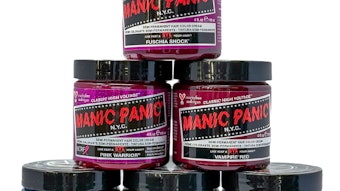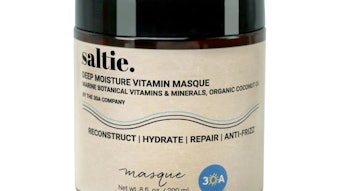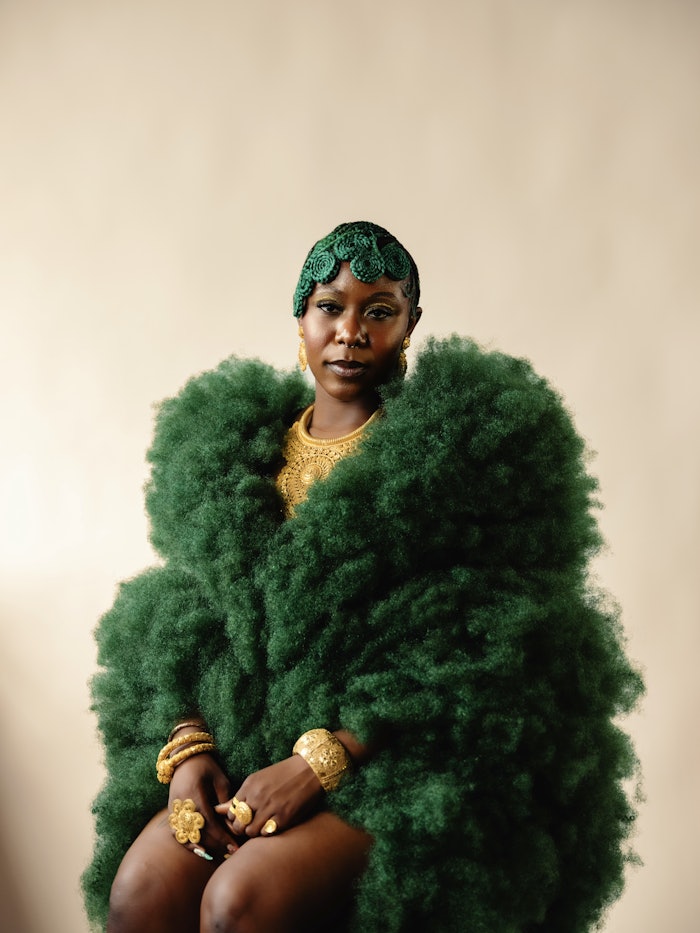
Bintou Diallo began her professional journey as a hairdresser at the end of the pandemic, a time when people all over were starting to redefine themselves with serious intention. Having developed a technical foundation for braiding hair at her mother’s shop as a child, Diallo grew to pursue other passions. Diallo’s return to hair as a young adult was rooted in the desire to create, liberate and celebrate art and individuality through hair. I originally met the eccentric Chicago-based hairstylist at a networking event, and even in a room full of aspirant creatives, Diallo stood out.
 By Festus Asante Courtesy of Bintou Diallo
By Festus Asante Courtesy of Bintou Diallo
Freedom Through Beauty
Similar to many beauty professionals, Diallo held a position in the service industry before committing to a career in beauty. “Everywhere, [coworkers and customers] had something to say about the way I looked. It wasn’t something I was a fan of,” Diallo says to me over a call between clients. She describes the time that ultimately led her to change paths as a string of experiences where she felt on constant display. Feeling trapped in the same cycle, Diallo recalls saying to herself: “I can’t do this. This is traumatizing.”
In stark contrast, braiding opened up a world of opportunity for Diallo to feel comfortable in her skin: “I have a big problem with having to shrink myself to fit into certain spaces.” Being a hairstylist doesn’t demand that Diallo become more digestible, and in exchange, offers a level of freedom that energizes her.
We continued to talk about the freedom, specifically the freedom to create, that comes with entrepreneurship. Freshly out from under a lens that didn’t fit her bold style, Diallo was finally able to step into hairstyling fully realized, “I think if you’re not creative for a really long time,” she says, referring to her time before hair, “you start to feel extremely normal”. As an entrepreneur, Diallo expressed the importance of accenting freedom with discipline without diluting it. She’s managed to balance career and creativity by not insisting that they always take up the same space. “I do artistic hairstyles, but as far as doing things like wearable art, I’m only executing my ideas as opposed to someone bringing me an idea that I’m working with them to execute.”
Diallo also explored professionalism, “I think being able to be a hairstylist with my clients redefined what it meant to be professional for me,” she says, “In hair school, they’ll tell you how to have certain professional conversations.” Diallo has found that when providing beauty services, concepts such as luxury and professionalism are more subjective. She explains her belief that traditional professionalism was crafted for an archetype that doesn’t always resonate with her clientele, which is made up of black women and other marginalized people.
Historically, “professionalism” has forced certain people to accept exclusion or participate in a self-erasure in exchange for a seat at a metaphorical table. “I’m smart,” Diallo challenges, “We can have great conversations, but I don’t have to code switch for us to have those conversations; I don’t have to not use profanity,” Diallo says, and I can hear the smile in her voice as she continues, “Because I’m going to curse.” There are multiple ways to show up in any industry, in any job, and through her work as a hairstylist, Diallo challenges the idea that one size fits all when it comes to creating a comfortable and professional atmosphere behind the chair.
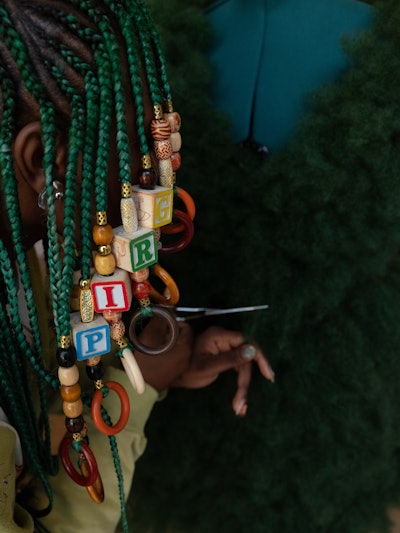 By Jermaine Jackson Courtesy of Bintou Diallo
By Jermaine Jackson Courtesy of Bintou Diallo
Gripgodd’s Origin Story
Once we’d gotten off our soapboxes about traditional professionalism and the limits it can impose, we moved on to something even more critical: her name. On Instagram, Diallo goes by “Gripgodd”, a well-earned title for such an impressive braider, but where did it come from? In a surprisingly mythical twist, the moniker was bestowed upon her by a client. “I was like, oh my god, this is amazing, this is the perfect name for me.” I followed up with a question about the impact on both her life and prospective clients. “Well, as the Gripgodd,” she jokes, ”It's a little bit empowering when I'm working on a project or on days where it's just like man, I do not want to do this no more,” She explains, “No, you're the Gripgodd. Lock in. Lock in. Lock in. It’s motivational in that way.”
The Journey to Creative Braiding
Diallo’s story is not unfamiliar to others in the beauty industry, but the creativity she brings to the craft is exceptional. In order to connect to her ideal client, Diallo used her own hair as a business card, “I needed to figure out how to do it for myself so I could look cool,” she explained. The inspiration behind this expansion into creative styling stemmed from a different set of skills altogether: fashion design. Her love for unconventional style drove her to create a range of unique creations, both on and off the model, such as her 20-foot braided durag and some cool, alternative styles featured on local musicians and in creative photoshoots.
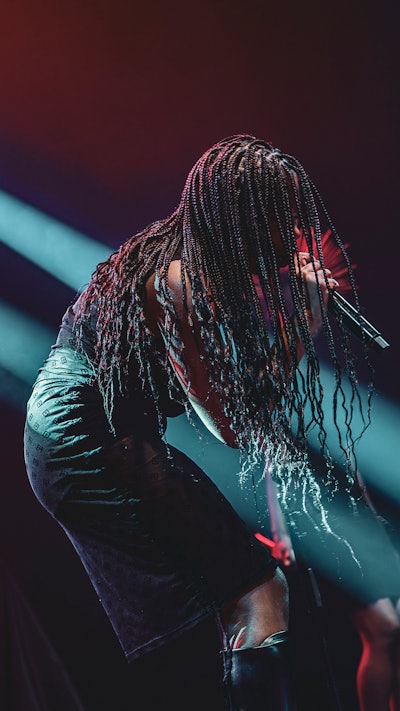 By Trequan Coleman Courtesy of Bintou Diallo
By Trequan Coleman Courtesy of Bintou Diallo
Styling herself was only one step in branding herself as a creative stylist. “I had to venture out to find creative clientele”. Diallo shared, “At first it was really hard to tap into that because most creative people either do their own hair or have PTSD from going to certain people.” Trust is a major obstacle for most everyone providing beauty services, even more so from people who have more ambitious aesthetic desires “I’m definitely trying to remove the trauma from hairstyles. I’ve seen it where you go for one style and you don’t necessarily get that style, or they tell you that you’re doing too much,” she said, adding that it’s important that her more alternative clients know they have a space to feel heard and encouraged to explore their own ideas and identity through their hair.
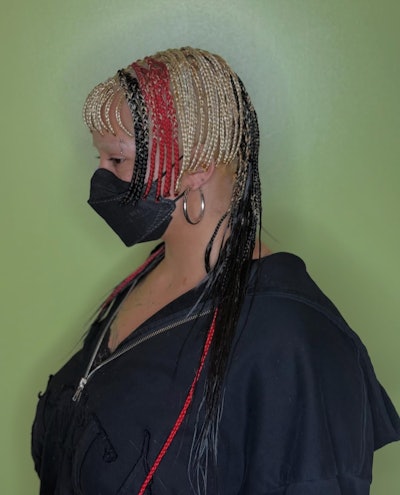 Courtesy of Bintou Diallo
Courtesy of Bintou Diallo
To really kick things off, Diallo began outreach to local talent and other ideal clients and started offering free services. Even with full confidence in her abilities, she envisioned it as a trust exercise for everyone involved: “Let me do your hair one time. You tell me if you like it, and then I’ll see you next time.” Eventually, word spread, “I met a couple of artists or people who were a little more alternative, who would give me more creative control over the hairstyle, and from there we just started experimenting.”
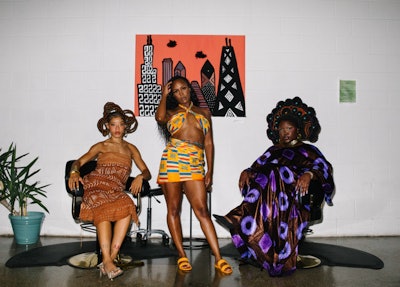 By Jermaine Jackson Courtesy of Bintou Diallo
By Jermaine Jackson Courtesy of Bintou Diallo
The 2024 Gripgodd Wear Your Hair Exhibition
In 2024, Diallo organized the “Gripgodd Wear Your Hair Exhibition” in Chicago, which alchemized fashion and hair. “It was inspired by my upbringing,” she told me, as we toured the pinned posts of her Instagram grid, “I like to be able to tell stories through my work, and I wanted to use my hair skills to do something that I initially went to school for, which was fashion design.” The creative challenge of this exhibition was Diallo finding creative ways for people to wear their hair, literally. The exhibit was split into two primary categories: a wearable section and a seated hair section.
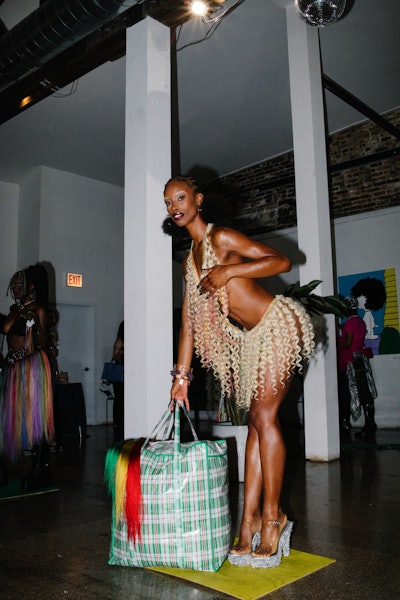 By Jermaine Jackson Courtesy of Bintou Diallo
By Jermaine Jackson Courtesy of Bintou Diallo
In what Diallo calls the wearable section, there were live models showcasing pieces made from or inspired by hair. One of the pieces, “Mali Gurl, White Wurld”, reflected Diallo’s journey moving to a new country. “I didn’t know what to do, and this piece was inspired by that.”
“The bag that the girl is sporting is a very traditional immigrant bag. Usually, one of those bags where you go to a different country and things just don’t work out for you, and you come back in that bag. We really wanted to glorify that,” she said, walking me through the meaning behind every detail, “ I put the Malian colors, red, yellow and green, and the 613, again just living in a white world, with white beauty standards and trying to add my own color to that.”
The hair section was backgrounded by a piece of art that depicted the Chicago skyline in African prints, with models wearing traditional garments and artistic hairstyles. This part of the exhibit married the sanctity of the Diallo’s salon experience by configuring salon chairs to replicate a royal court. “Growing up as an immigrant in a hair shop and seeing what the hair shop meant to the women who were working in there. The hair shop is where we find community. Where we find friendship. Most of our days are spent here.“ Diallo makes the poignant connection between the African immigrant experience in the salon being synonymous with church in the Black American experience, “Like kids grow up in the hair shop. It’s the hub of connection. So I wanted to use that as a way of showing growing up African and also growing up in a Black American society, these are the things I’ve dealt with.”
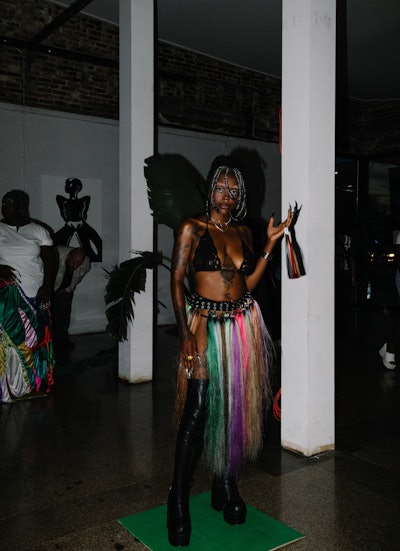 By Jermaine Jackson Courtesy of Bintou Diallo
By Jermaine Jackson Courtesy of Bintou Diallo
The Wrap Up
Throughout our interview, I had the opportunity to fill out the rest of Diallo’s experience, not just with creative braiding but with the industry and her clients as well. Many exclaim the difficulties of networking in Chicago, but Diallo has found success in building her own community in the Windy City.
“I was definitely looking,” she said, when asked how she started engaging with the industry outside of clients, “I was trying to make myself a part of that community. Knowing another hairstylist was nice because she introduced me to others.” One of those hair stylists was Ryuan Johnson (@sexyscalps), who not only helped Diallo move closer to the fashion and artistic side of hairstyling but also contributed to her 2024 museum-style exhibit alongside Yadi Torres (@msyadiyadi). Diallo regularly nurtures her connection to the industry by attending classes, collaborating with creatives, and frequenting local networking opportunities.
On defining success, Diallo used words like consistency, accessibility, and affirmation. “I think everyone deserves a professional,” she said, “A lot of my clients are trans and I’m their first hairstylist where they’re getting gender affirming styles.” Diallo holds fast to her commitment to removing trauma from haircare.
On finding that success throughout her journey as a stylist, Diallo could only give the answer none of us wanted, “Unfortunately, consistency. You really do have to be consistent and you really do have to be true to yourself,” she says, referring to consistency of style and quantity instead of just frequency, “because there’s so many hair stylists out here and so many people who do really great work.”
As we concluded our talk, I asked her for a note to leave with our readers, and she gave me this: “Show up authentically. However you start is how people are going to keep booking you.”
